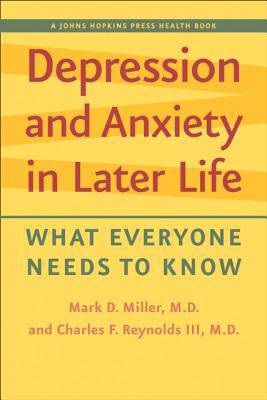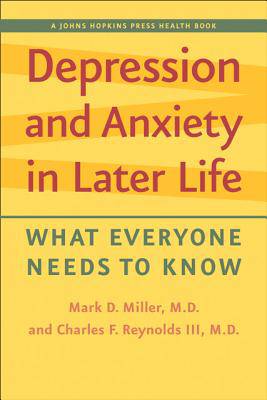
- Retrait gratuit dans votre magasin Club
- 7.000.000 titres dans notre catalogue
- Payer en toute sécurité
- Toujours un magasin près de chez vous
- Retrait gratuit dans votre magasin Club
- 7.000.000 titres dans notre catalogue
- Payer en toute sécurité
- Toujours un magasin près de chez vous
Description
Depression and anxiety can be avoided or minimized through medication and therapy and by adapting to changing circumstances as we age.
Physical problems and emotional stresses, such as bereavement, health conditions, pain, concerns about the future, side effects of medications, and the accumulated effects of lifestyle choices, may lead to depression or anxiety in older people. However, as Drs. Mark D. Miller and Charles F. Reynolds III know, these mental disorders are not a natural or an inevitable part of aging. In Depression and Anxiety in Later Life, these psychiatrists show how depression and anxiety can be avoided or minimized by adapting to changing circumstances while controlling risk factors and getting help when it's needed.
This reassuring book balances discussions of the causes, symptoms, and treatments of mental illness with descriptions of successful adaptive aging. Case studies illustrate the less obvious depression symptoms of irritability, disorganization, and social withdrawal. Readers will find information about memory loss, pain, sleep, nutrition, and end-of-life issues particularly helpful.
Aging can be challenging, but it doesn't always lead to depression or anxiety. Depression and Anxiety in Later Life will help older people, their family members, and caregivers make positive changes to take control of their own individual situations.
Spécifications
Parties prenantes
- Auteur(s) :
- Editeur:
Contenu
- Nombre de pages :
- 224
- Langue:
- Anglais
- Collection :
Caractéristiques
- EAN:
- 9781421406305
- Date de parution :
- 17-09-12
- Format:
- Livre broché
- Format numérique:
- Trade paperback (VS)
- Dimensions :
- 154 mm x 229 mm
- Poids :
- 322 g







